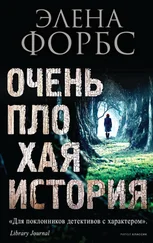Beyond the house was a road comparatively free of debris and standing in the road was a single-decker bus, its sides covered with dust. Four people stood outside the bus and they appeared to be arguing. The bus was empty of passengers but its interior was crammed with a motley collection of goods, and beyond the open door he saw a seat piled high with miscellaneous articles. Bottles of wine, their necks protruding from a wicker basket, some red material which might be curtains or a bedspread, an up-ended silver tray, the upper half of a small chair with a brocaded back, and an old hunting rifle with a silver-plated stock. The quartet which stood arguing were almost as strange a collection as the contents of their bus.
The bony-faced man stood on one side, putting in a word every now and again, while the other three men formed a circle, facing each other as they talked. The leader of the group appeared to be a short squat man with a swarthy complexion and a large black moustache. He wore a crumpled business suit, a dark slouch hat pushed well back over his head, and round his neck was tied a coloured handkerchief. Barnes was reminded of a Corsican he had once met in a bar at Port Said when his troopship stopped there on the way home from India. The other two men were very thin and tall and they seemed to defer to the swarthy individual when the argument became too heated; they were dressed in blue denim jackets and trousers and wore black berets pulled tightly over their heads. Barnes walked out from behind the wall, his machine-pistol aimed at the group, his voice harsh.
‘What the devil’s going on here?’
Three bodies spun round to face him, then froze. The Corsican was the first to recover and he came forward a few paces, smiling as he said something in French.
‘Talk in English,’ snapped Barnes.
The Corsican made a show of not understanding. Jabbing forward his pistol, Barnes rasped out the words.
‘Get your hands up or I’ll cut you to pieces.’
The Corsican shot up his hands, saying something quickly over his shoulder, and three more pairs of hands jumped above shoulder level.
‘I’m glad you speak English,’ Barnes commented. ‘Who are you? Come on – be quick about it.’
‘Joseph Lebrun, sir. Fur salesman from Le Cateau.’
‘What’s the name of this place?’
‘Beaucaire, sir. You are the British Army?’
‘The advance guard. That road which comes into the town from the west – where does it lead to?’
‘To Cambrai. Arras is beyond.’
God, Barnes was thinking, we’re miles farther south than I’d thought. He stepped back several paces because Lebrun was showing a tendency to edge closer. He kept his voice crisp and hard.
‘Stay where you are. Lebrun, how close are the Germans?’
‘They have gone.’ Lebrun looked astonished. ‘They passed through here several days ago soon after the first bombing…’
‘Soldiers in trucks, you mean?’
‘No nothing like that. It was a long column of huge tanks, enormous guns.’
‘But no soldiers in trucks?’ Barnes repeated.
‘No, nothing like that.’ He stared at the machine-pistol, frowning. ‘That is a German gun?’
He’s quick, this one, Barnes warned himself, and probably treacherous. He kept the pistol aimed at Lebrun’s stomach as he pressed home his cross-examination.
‘How long ago was this? You said several days ago – exactly how many days?’
‘Six or seven days since. We did not see them ourselves -we were told. We do not live here.’
He stopped quickly and his face went blank as though he had said the wrong thing. Barnes went on talking quickly, determined to extract the maximum information from this gangster while he was still off-balance.
‘Lebrun, where are the Germans now?’
‘In Abbeville.’
Barnes felt as though he had been rabbit-punched. If this were true the BEF and the French armies in the north would be severed from the main French armies to the south, a catastrophe without precedent during the whole of the First World War. Then he recovered. The so-and-so was lying, of course.
‘Abbeville’s on the coast, Lebrun. Now try again and this time be a bit more careful.’
‘I tell you.’ He became excited, waving his hands above his head. ‘I tell you, they are in Abbeville – we met refugees who were from the town. The Germans tanks are everywhere. They have thousands of tanks and they are all over France.’
‘But not near here?’
The squat man’s eyes became cunning and he stared hard at Barnes before replying.
‘Only the big tank outside Beaucaire – on the roads towards Cambrai.’
‘A German tank, you mean? How far along the road outside Beaucaire?’
‘Seven or eight kilometres – we passed it on our way back here. It is there by accident, I am sure. It has broken down in a field and four soldiers are trying to make the repairs. They are working stripped to the waist like peasants. This was two hours ago.’
‘On which side of the road as you drive towards Cambrai?’
‘To the right, about half a kilometre from the road.’
Barnes nodded and gave them instructions, forming them into a line spread out across the full width of the road with plenty of space between each man. Then he marched them back towards the square, halting at a side turning which led down to the road from the square, at the corner he made them lie down in the dust, flat on their stomachs with their arms stretched out full length, firing one burst from his machine-pistol into the air. The prone bodies jumped and he knew that for a brief second they had believed they were about to die. In the distance he heard the throb of Bert’s engines and he fired a second short burst, bringing the tank round the corner. Only Lebrun plucked up the courage to look over his shoulder as the tank pulled up.
‘Who are these birds?’ inquired Penn from the turret.
‘Looters.’ Barnes spat out the word. ‘While their own chaps are trying to hold off Jerry this lot goes round scavenging. There’s a bus-load of the stuff up the road.’
‘How did you catch on?’
‘Bony-Face was wearing some of it. He’s wearing a filthy old suit but the tie and the shoes don’t go with it – to say nothing of the gold watch.’
He ordered Penn to stay in the turret while Reynolds searched the four men. From Lebrun and one of the thin men the driver extracted two pistols, German 9-mm Luger pistols, and when Barnes asked where they had obtained these Lebrun explained that they had taken them off two dead German soldiers they had found lying beside a crashed motor-cycle and side-car. Barnes made no comment on the fact that only German officers were armed with Luger pistols and he left Penn to guard the four men while he walked back to the bus with Reynolds.
The seats of the bus were littered with a variety of loot which included a glass case containing old gold coins and Barnes was burrowing deeper into the strange cargo when he heard Reynolds give a whoop. The driver had thrown out of the door the hunting rifle, the silk curtains, the little chair and silver tray when he called out. Barnes looked up.
‘Found some champagne?’
‘Yes, for Bert!’
He was holding a heavy rectangular can and had taken off the cap while he examined the contents. Replacing the cap, he carried it off the bus and put it down on the roadside as though it were a fragile glass vase. Then they began searching the bus ruthlessly, finding more cans of the precious diesel fuel which they carried to the roadside. Within five minutes Reynolds had arranged twenty cans in a neat row and still Barnes found it hard to believe their good luck. Bert ran on diesel fuel and possibly the only vehicle in northern France which used this was a bus. Reynolds stood guard over the cans as though he were afraid they might walk away, his voice almost purring.
Читать дальше
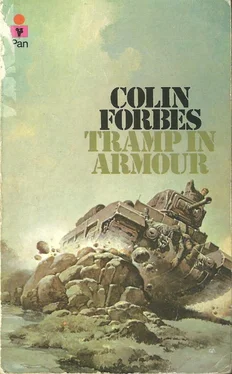

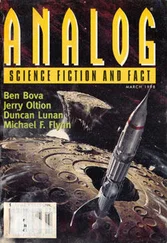

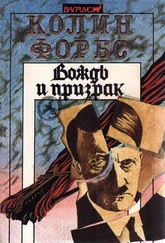
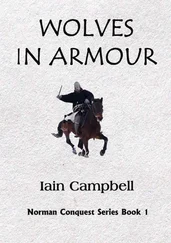
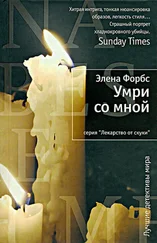
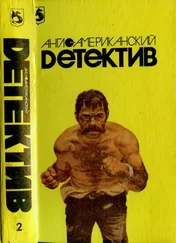
![Невилл Форбс - История Балкан [Болгария, Сербия, Греция, Румыния, Турция от становления государства до Первой мировой войны] [litres]](/books/390301/nevill-forbs-istoriya-balkan-bolgariya-serbiya-gre-thumb.webp)

